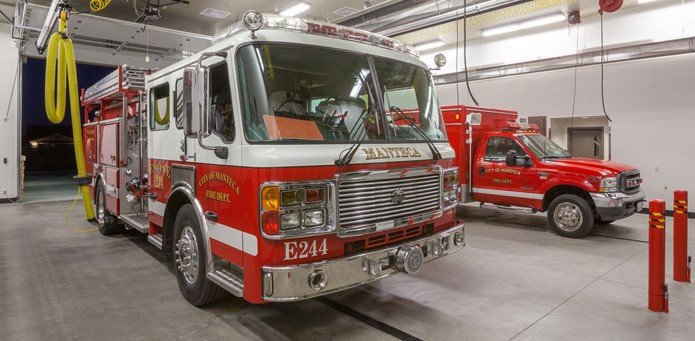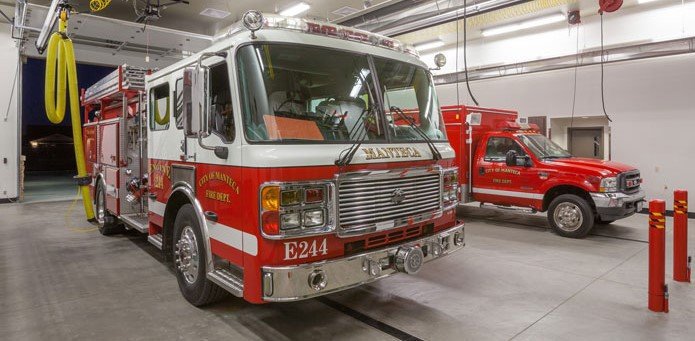My first lesson in a community’s failure to have a frank discussion about how government works — and by extension doesn’t work — was highly personal.
It was 1965. I was 9 years old at the time.
The City of Lincoln had a council that the majority took pride in the fact they never raised taxes..
Lincoln in western Placer County northeast of Sacramento had 3,100 residents.
The police department had two police cars. Neither one had a shotgun.
How that lack of equipment cost an officer his life seven years later is a different story.
This is about decisions not to help a fire department — a volunteer endeavor at the time — remain properly equipped to handle typical emergencies.
It happened that one of the council members also happened to own the local funeral parlor and ambulance service.
There were those on the council who also served on the volunteer fire department that were concerned about the availability of the ambulances in emergencies.
The ambulance basically relied on workers that often had to be called into work that also did double duty at the mortuary.
The two council members that were also volunteer firefighters wanted the department’s rescue unit — a large refurbished used delivery van — to have more advanced life support equipment. Oftentimes the rescue squad arrived on scene a significant number of minutes ahead of the ambulance.
The council majority that included the mortuary-ambulance owner blocked any effort to invest in more equipment arguing it would require raising the property tax.
This was back in the pre-Proposition 13 days when the council determined the tax rate once a year.
The ambulance owner feared the fire department would end up transporting patients.
That wasn’t what the volunteers had in mind given the high cost of doing so. They just wanted money to equip the rescue squad to stabilize patients until the Lincoln ambulance arrived or one out of Roseville or Auburn some 15 plus miles away did.
But the argument was repeatedly batted down not after a frank discussion weighing of the pros and cons but simply by the blanket declaration that it would be too costly and cost taxpayers too much. There never was a study conducted to determine the cost and what it might translate into in terms of a property tax hike.
And given the council was the only ones that could raise taxes, there was never a public debate and election.
So what does this have to do with me?
My father, after selling the hardware store, he owned in Roseville went to work as superintendent of the Lincoln Cemetery District that had three cemeteries.
He was cutting grass at Lincoln Cemetery in the early afternoon of Aug. 19, 1965.
By chance, he was mowing within 10 feet of the headstone marking the graves of his parents when he suddenly keeled over.
He had suffered a major heart attack.
A member of his crew rushed over and then ran back to the office to call the police department.
A few second later, I heard the department’s air siren go off. It was one blast. That meant a medical emergency.
Two blasts was mutual aid and three blasts was a fire.
The siren was as much to alert people to get off the streets as it was to summon volunteers.
Some volunteers made a mad dash to the fire station to get the engine. Others headed directly to where their department radios informed them the call was at.
They arrived at the cemetery within 10 minuities of the initial call.
The ambulance didn’t show up until 15 minutes later due to problems getting the driver and his assistant.
I need to make it clear.
I have no idea if the outcome would have been different if the rescue squad had additional equipment.
I do know there were a few people — including volunteer firefighters — that thought that might be the case.
It wasn’t the first time nor would it be the last time people asked themselves a question like that.
Two things are clear to me.
My father died.
It is anybody’s guess if specific medical equipment had been available in a timelier manner whether that would have made a difference.
It was as different time. And it was what it was.
The second point is that taxpayers should not be left in the dark.
Six years later, when I started as a 15-year-old stringer for the weekly Lincoln News Messenger, the council at the time was still debating whether they could afford to enhance fire department apparatus. The debate always ended with a flat refusal to be the ones to institute a tax increase.
A refusal to raise taxes in a vacuum devoid of any frank decision of what that could end up meaning was a winner in local elections.
Then tragedy struck 18 months later when officer Les Schellbach was fatally gunned down on a Sunday morning when he was the only officer on duty. His back up, Sgt. Robert Barroso, responded in his family’s station wagon wearing civilian clothing. He was seriously wounded.
Both had nothing but handguns against three armed robbers carrying semi-automatic weapons.
The public was shocked and then enraged.
The council was more than irked about one of my assignments for the going rate of one dollar for every photo printed.
It was a picture of the Lincoln Business and Professional Women presenting a check for $100 to Police Chief Robert Jimenez so the department could buy a shotgun for a police unit.
What brought this up was a Manteca City Council decision Tuesday to spend $200,000 in Measure M public safety tax receipts to buy and equip backup fire engines from Fremont.
The East Bay city is getting rid of the engines because they are too old based on accepted standards to serve as reserve engines for that city’s frontline fire apparatus.
I take the Manteca Fire Department’s word that between automatic aid and such there have been any lives in danger due to equipment issues.
But still, they have had three of five frontline apparatus out of service and had to rely on a seriously aged reserve fleet of fire trucks that parts are no longer manufactured for.
The people — the voters that all pay sales taxes — need to know the score.
The current council has done a lot of things right.
But their one big failure is to make the case for a restricted sales tax increase that will address some rather serious public safety concerns.
The decision, of course, is up to the voters.
But if the council doesn’t publicly share the need instead of just approving a consent item to buy the used fire engines as they did on Tuesday without comment, and doesn’t place a measure on a ballot next year to let the people decide what level of public safety they can afford, they are not looking out for the community’s best interests.
We have a fire department with apparatus that clearly is not what we need.
And we need a police department that can do more than just hold the line.
Make a case for a tax.
Spell out exactly what will be done with it.
And then ask the taxpayers — of which we all are — to decide its fate.
This column is the opinion of editor, Dennis Wyatt, and does not necessarily represent the opinions of The Bulletin or 209 Multimedia. He can be reached at dwyatt@mantecabulletin.com





